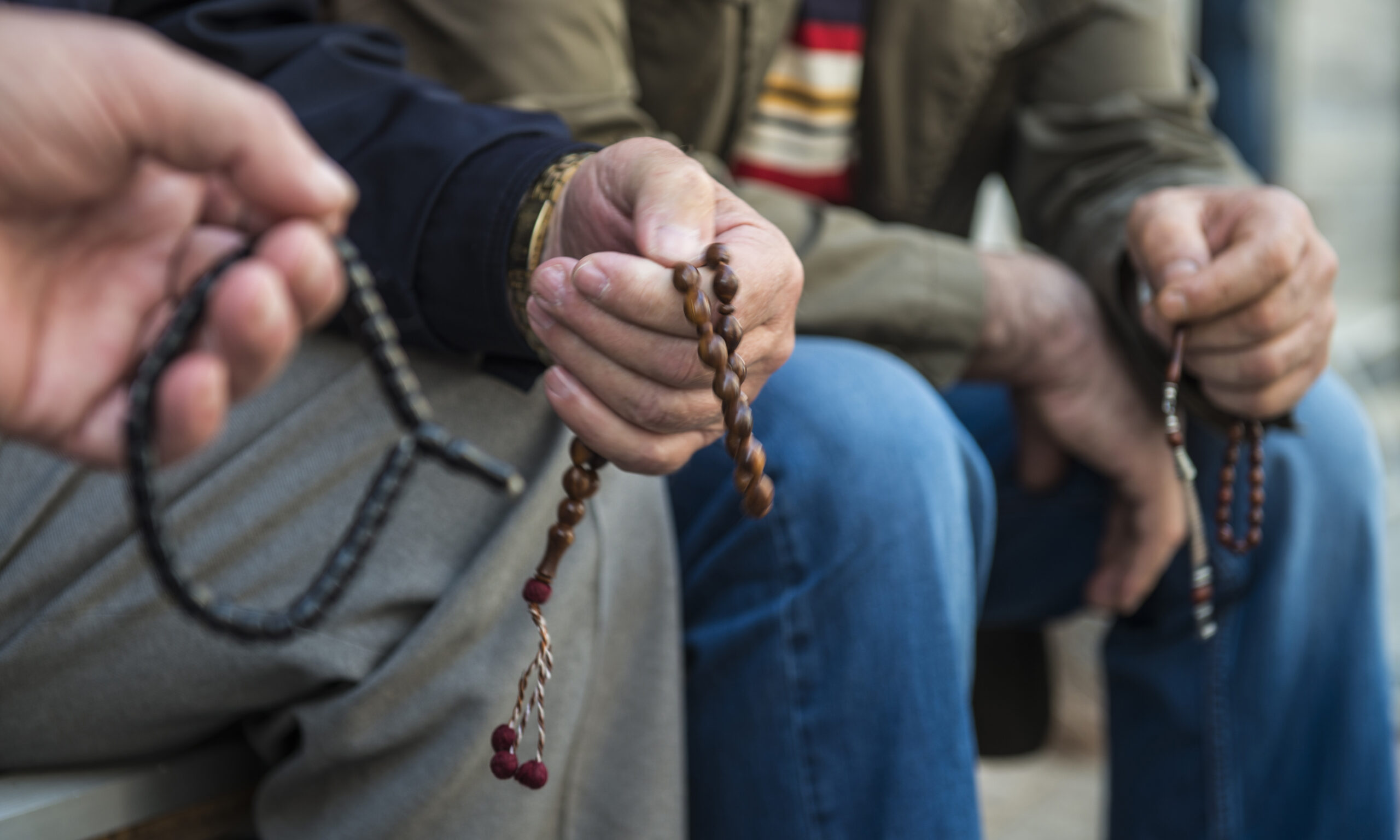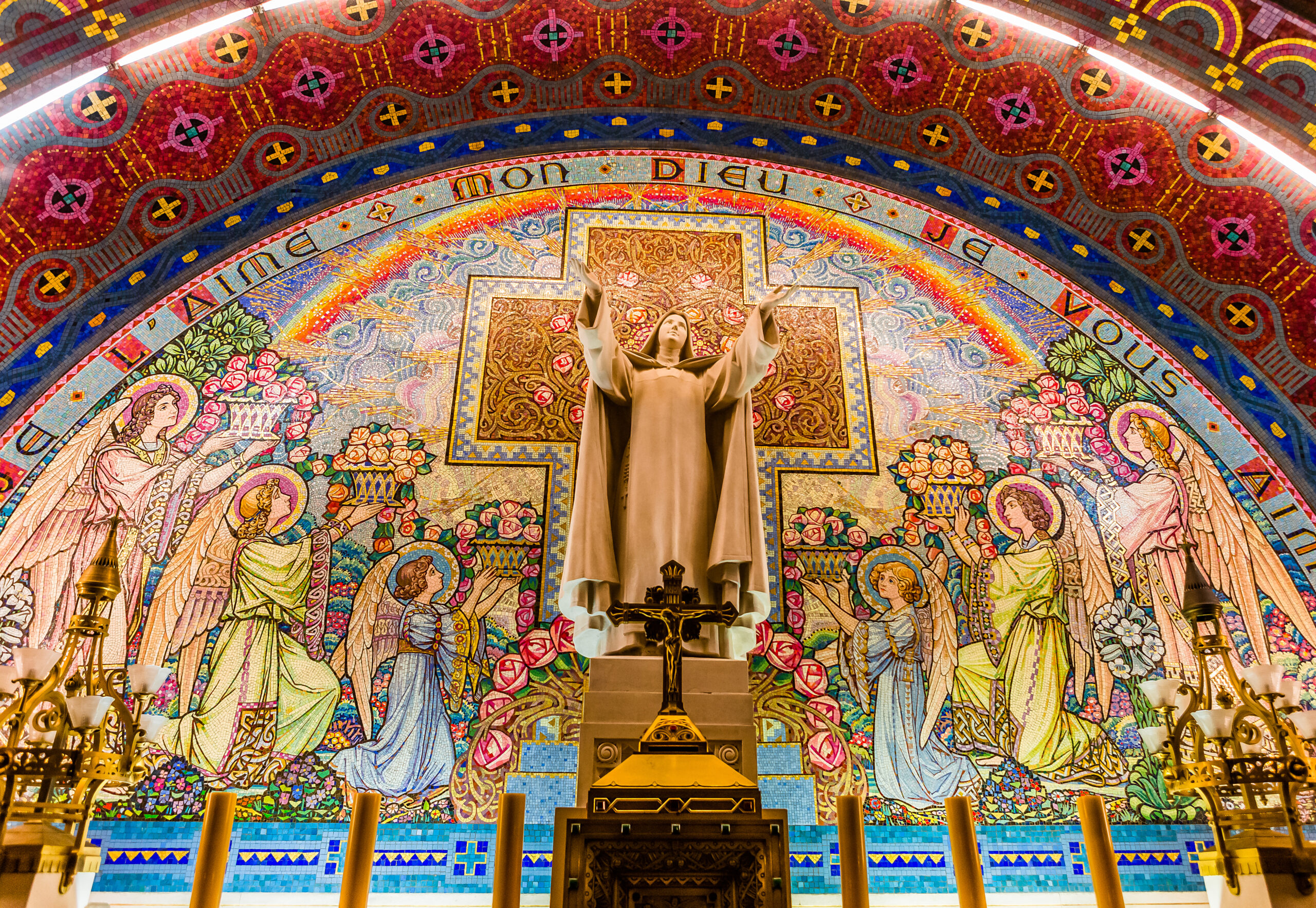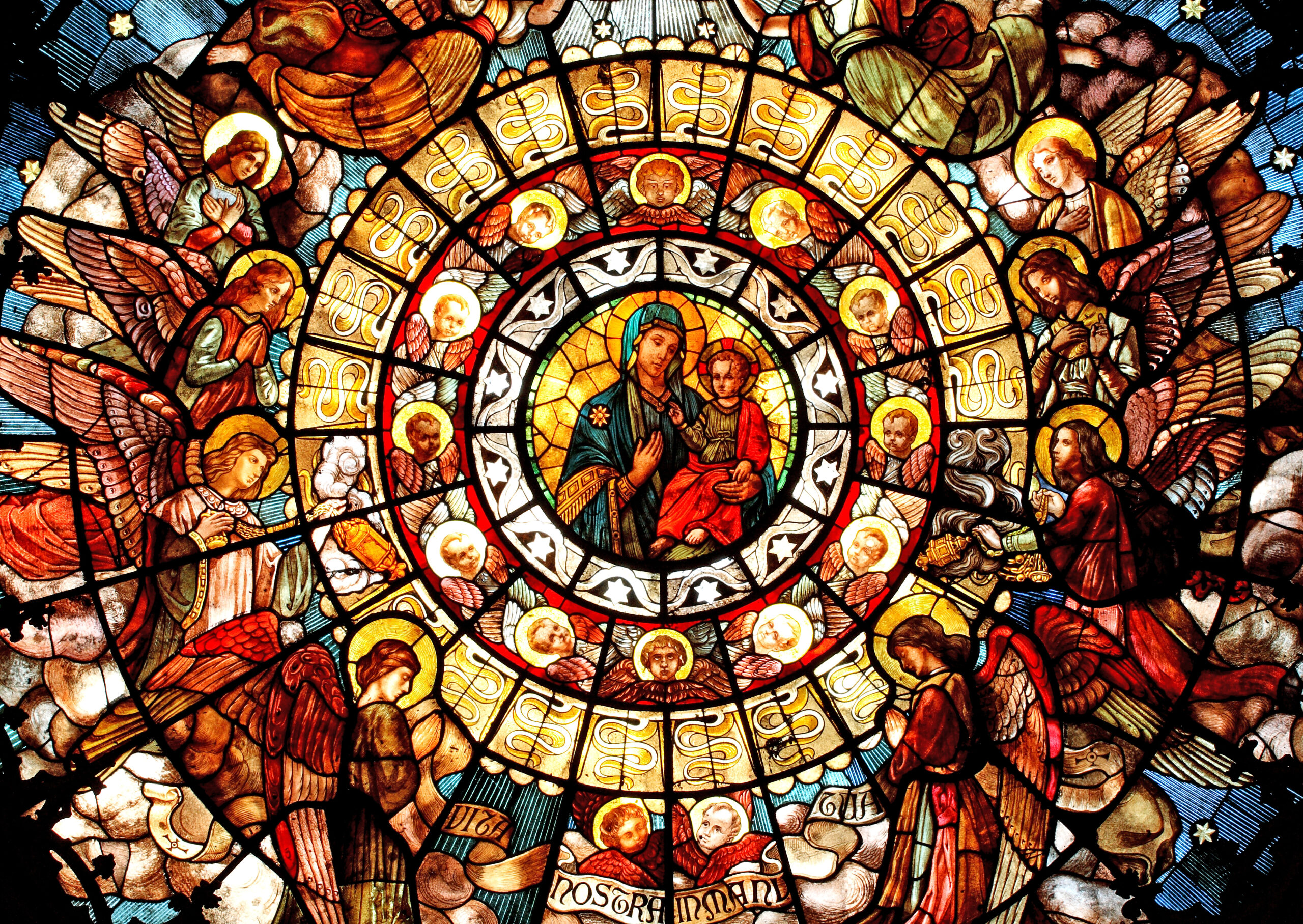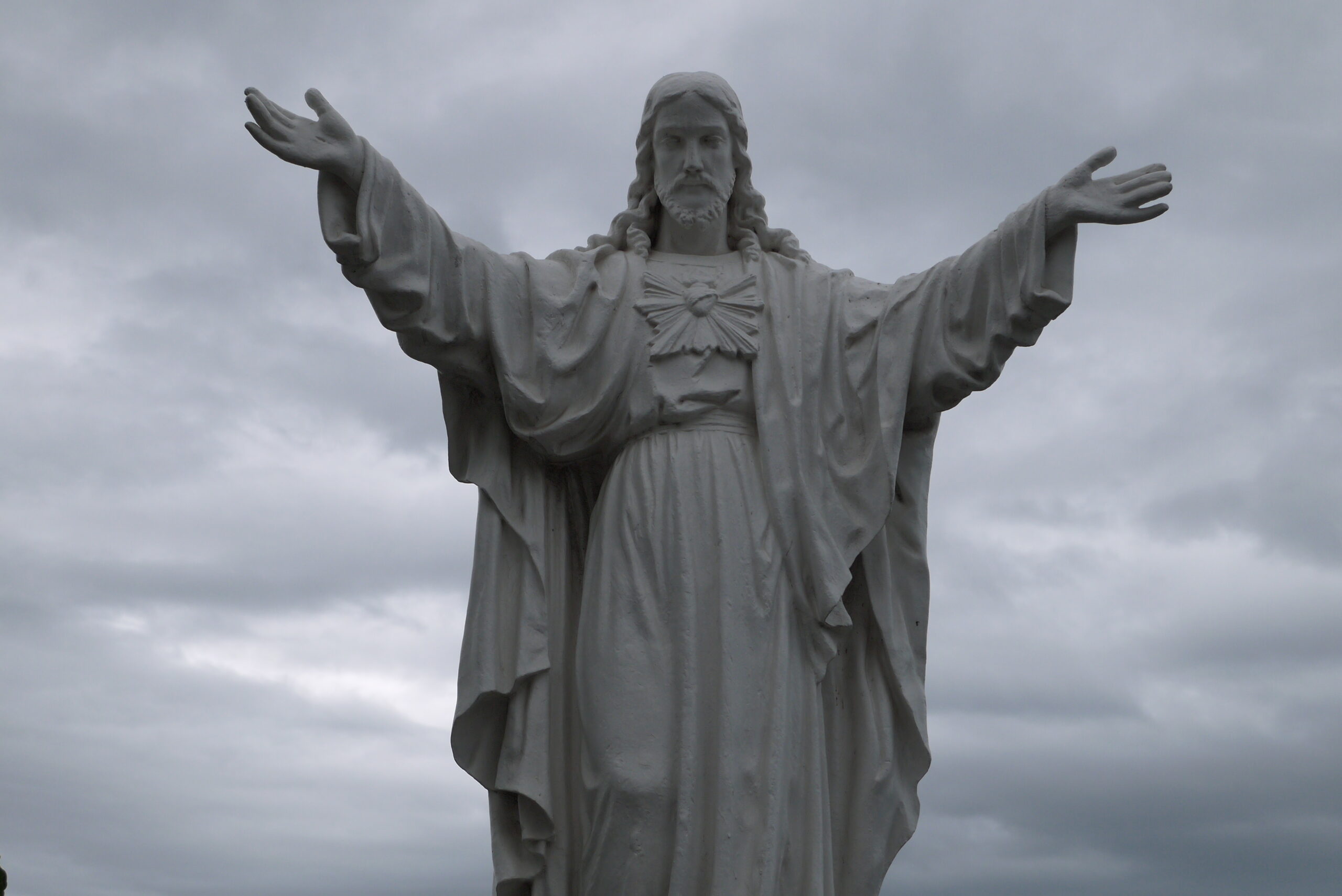Today the Church celebrates the Memorial of Our Lady of the Rosary. Where does this title and celebration come from?
At the last apparition of Fatima on October 13, Mary identified herself in this way, saying, “I am the Lady of the Rosary. Continue always to pray the Rosary every day.” But nearly 350 years earlier, the history of this memorial celebration began. The troops of the Turkish Ottoman Empire had invaded and occupied the Byzantine Empire by 1453, and brought a large portion of the Christian world under a version of Islamic law. They continued to expand westward for the next 100 years, determined to invade Rome. In 1571, a fleet of 300 ships of the Ottoman Empire was preparing to wage a battle to conquer Europe, off the coast of Western Greece. Genoa, Spain, and the Papal States – three Catholic powers of Europe – formed an alliance called the Holy League, to defend Christian civilization against the looming Turkish invasion, sailing to confront them near Lepanto. Pope Pius V called for all of Europe to pray the Rosary for victory, and the crew of the 200 ships of the Holy League prayed it as well.
Lepanto was a decisive battle, setting the trajectory of European history for hundreds of years. The pope attributed this to the intercession of Our Lady through the Rosary, and in thanksgiving instituted the celebration of “Our Lady of Victory” on October 7 and inserted the invocation “Help of Christians” into the Litany of Loreto. The name of the feast was changed by several popes, but always with the intention of giving thanks for this victory.
It is interesting that it was at Fatima that Mary revealed herself as the “Lady of the Rosary”, as the name of this little village refers to the youngest daughter of the prophet Mohammed, the founder of Islam (Portugal and Spain were occupied by Muslims for centuries). Mary is also the only woman named in the Quran, which describes her as being chosen above all other women. This indicates the possibility of a connection between Islam, Mary, and the Rosary.
At the July apparition, Mary told the children to “Pray the Rosary every day in honor of Our Lady of the Rosary in order to obtain peace for the world…because only she can help you.”
Pope Francis called the Rosary a “simple contemplative prayer, accessible to all… In the Rosary we turn to the Virgin Mary so that she may guide us to an ever closer union with her Son, Jesus, to bring us into conformity with him, to have his sentiments and behave like him… The Rosary is an effective means for opening ourselves to God.”
So let us make or renew our resolution to pray this simple prayer, as so many popes, saints, and Mary herself have encouraged us to do; for peace in our hearts, in our homes, in our families, and in our world!
 Kathryn Mulderink, MA, is married to Robert, Station Manager for Holy Family Radio. Together they have seven children (including newly ordained Father Rob and seminarian Luke ;-), and two grandchildren. She is a Secular Discalced Carmelite and has published five books and many articles. Over the last 25 years, she has worked as a teacher, headmistress, catechist, Pastoral Associate, and DRE. Currently, she serves the Church as a writer and voice talent for Catholic Radio, by publishing and speaking, and by collaborating with the diocesan Office of Catechesis, various parishes, and other ministries to lead others to encounter Christ and engage their faith. Her website is https://www.kathryntherese.com/.
Kathryn Mulderink, MA, is married to Robert, Station Manager for Holy Family Radio. Together they have seven children (including newly ordained Father Rob and seminarian Luke ;-), and two grandchildren. She is a Secular Discalced Carmelite and has published five books and many articles. Over the last 25 years, she has worked as a teacher, headmistress, catechist, Pastoral Associate, and DRE. Currently, she serves the Church as a writer and voice talent for Catholic Radio, by publishing and speaking, and by collaborating with the diocesan Office of Catechesis, various parishes, and other ministries to lead others to encounter Christ and engage their faith. Her website is https://www.kathryntherese.com/.


 J.M. Pallas has had a lifelong love of Scriptures. When she is not busy with her vocation as a wife and mother to her “1 Samuel 1” son, or her vocation as a public health educator, you may find her at her parish women’s bible study, affectionately known as “The Bible Chicks.”
J.M. Pallas has had a lifelong love of Scriptures. When she is not busy with her vocation as a wife and mother to her “1 Samuel 1” son, or her vocation as a public health educator, you may find her at her parish women’s bible study, affectionately known as “The Bible Chicks.”
 Kate Taliaferro is an Air Force wife and mother. She is blessed to be able to homeschool, bake bread and fold endless piles of laundry. When not planning a school day, writing a blog post or cooking pasta, Kate can be found curled up with a book or working with some kind of fiber craft. Kate blogs at
Kate Taliaferro is an Air Force wife and mother. She is blessed to be able to homeschool, bake bread and fold endless piles of laundry. When not planning a school day, writing a blog post or cooking pasta, Kate can be found curled up with a book or working with some kind of fiber craft. Kate blogs at 
 Dr. Alexis Dallara-Marsh is a board-certified neurologist who practices in Bergen County, NJ. She is a wife to her best friend, Akeem, and a mother of two little ones on Earth and two others in heaven above.
Dr. Alexis Dallara-Marsh is a board-certified neurologist who practices in Bergen County, NJ. She is a wife to her best friend, Akeem, and a mother of two little ones on Earth and two others in heaven above.
 Patrick produces YouTube content for young Catholics on
Patrick produces YouTube content for young Catholics on 
 Kathryn James Hermes, FSP, is the author of the newly released title
Kathryn James Hermes, FSP, is the author of the newly released title
 Sarah Rose hails from Long Island and graduated from Franciscan University in 2016 with a Bachelor’s in Theology & Catechetics. She is happily married to her college sweetheart John Paul. They welcomed their first child, Judah Zion, in 2019. She is passionate about her big V-vocation: motherhood, and her little v-vocation: bringing people to encounter Christ through the true, the good, and the beautiful. She loves fictional novels, true crime podcasts/documentaries, the saints (especially Blessed Chiara Luce Badano), & sharing conversation over a good cup of coffee. She is currently the Coordinator of Young Adult Ministry at St. Cecilia Church in Oakley, Cincinnati. You can find out more about her ministry here:
Sarah Rose hails from Long Island and graduated from Franciscan University in 2016 with a Bachelor’s in Theology & Catechetics. She is happily married to her college sweetheart John Paul. They welcomed their first child, Judah Zion, in 2019. She is passionate about her big V-vocation: motherhood, and her little v-vocation: bringing people to encounter Christ through the true, the good, and the beautiful. She loves fictional novels, true crime podcasts/documentaries, the saints (especially Blessed Chiara Luce Badano), & sharing conversation over a good cup of coffee. She is currently the Coordinator of Young Adult Ministry at St. Cecilia Church in Oakley, Cincinnati. You can find out more about her ministry here: 


 Nikol M. Jones is in her final year at Franciscan University’s Master’s in Theology and Christian Ministry program where it has been her joy to learn how to integrate the tools of modern biblical scholarship with the principles of biblical interpretation set forth by the Catholic Church in the service of the Word of God. She also has a passion for creating artwork and children’s books that honor the life and teachings of Christ. When she’s not studying or painting, she utilizes her writing and organizational skills as an administrative assistant. You can connect with her on LinkedIn at
Nikol M. Jones is in her final year at Franciscan University’s Master’s in Theology and Christian Ministry program where it has been her joy to learn how to integrate the tools of modern biblical scholarship with the principles of biblical interpretation set forth by the Catholic Church in the service of the Word of God. She also has a passion for creating artwork and children’s books that honor the life and teachings of Christ. When she’s not studying or painting, she utilizes her writing and organizational skills as an administrative assistant. You can connect with her on LinkedIn at 
 Tommy Shultz is Director of Evangelization for the North Allegan Catholic Collaborative and the founder of Rodzinka Ministries. In these roles, he is committed to bringing all those he meets into a deeper relationship with Christ. Tommy has a heart and a flair for inspiring people to live their faith every day. He has worked in various youth ministry, adult ministry, and diocesan roles. He has been a featured speaker at retreats and events across the country. His mission and drive have been especially inspired by St. John Paul II’s teachings. Tommy is blessed to be able to learn from the numerous parishes he visits and pass that experience on in his presentations. With a degree in Theology from Franciscan University, Tommy hopes to use his knowledge to help all people understand the beauty of The Faith.
Tommy Shultz is Director of Evangelization for the North Allegan Catholic Collaborative and the founder of Rodzinka Ministries. In these roles, he is committed to bringing all those he meets into a deeper relationship with Christ. Tommy has a heart and a flair for inspiring people to live their faith every day. He has worked in various youth ministry, adult ministry, and diocesan roles. He has been a featured speaker at retreats and events across the country. His mission and drive have been especially inspired by St. John Paul II’s teachings. Tommy is blessed to be able to learn from the numerous parishes he visits and pass that experience on in his presentations. With a degree in Theology from Franciscan University, Tommy hopes to use his knowledge to help all people understand the beauty of The Faith.
 Deacon Dan Schneider is a retired general manager of industrial distributors. He and his wife Vicki recently celebrated their 50th wedding anniversary. They are the parents of eight children and twenty-nine grandchildren. He has a degree in Family Life Education from Spring Arbor University. He was ordained a Permanent Deacon in 2002. He has a passion for working with engaged and married couples and his main ministry has been preparing couples for marriage.
Deacon Dan Schneider is a retired general manager of industrial distributors. He and his wife Vicki recently celebrated their 50th wedding anniversary. They are the parents of eight children and twenty-nine grandchildren. He has a degree in Family Life Education from Spring Arbor University. He was ordained a Permanent Deacon in 2002. He has a passion for working with engaged and married couples and his main ministry has been preparing couples for marriage.